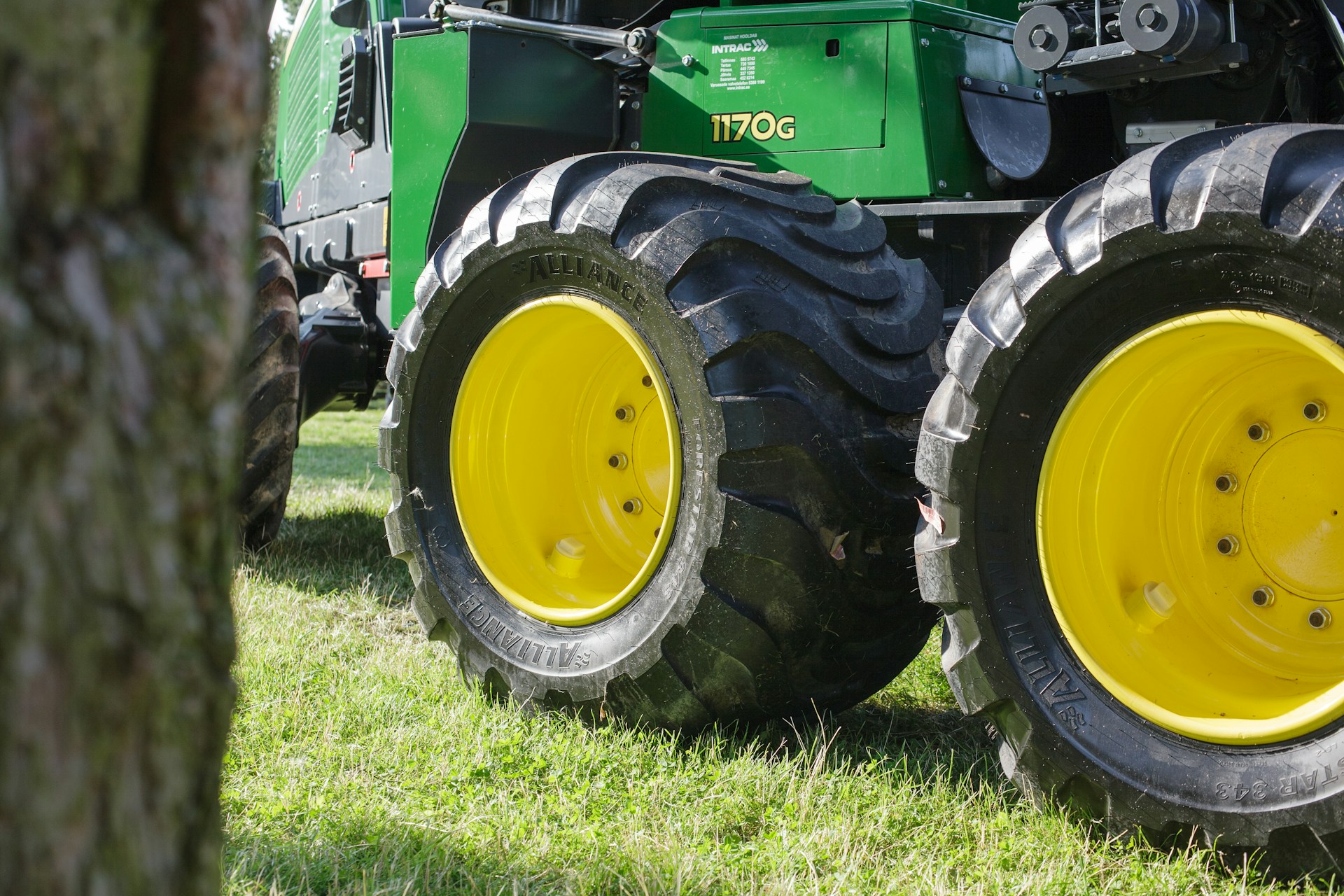The Ultimate Guide: Selecting the Best Agricultural Tires for Your Needs
- Posted by otrtirethai.com
- Posted on
- Posted in Blog
Choosing the right agricultural tires is vital for the success of any farming operation. These tires handle heavy loads, rough terrain, and long hours of work, making their selection and maintenance crucial. The right tires can improve efficiency, save costs, and ensure the safety of your equipment and operators.
Understanding the different types of agricultural tires and their specific uses can help you make an informed decision. Factors such as soil type, crop type, and the kind of machinery you use play a significant role in determining the best tires for your needs. Proper maintenance is equally essential, as it extends the life of your tires and enhances their performance.
Let’s explore the various types of agricultural tires, key factors to consider when choosing them, and some top brands known for their durability and quality. We’ll also provide essential maintenance tips to help you get the most out of your investment in agricultural tires.
Understanding Different Types of Agricultural Tires
Agricultural tires come in various types, each designed for specific kinds of equipment and functions. Knowing the differences helps ensure you select the right tires for your needs. One common type is radial tires.
Radial tires have a flexible sidewall and offer a larger contact area with the ground. This design provides better traction and a smoother ride, making them ideal for heavy machinery like tractors. Radial tires also tend to last longer due to their advanced construction.
Another type is bias-ply tires. These are constructed with multiple layers of rubber laid at different angles, which makes them more resistant to cuts and punctures. Bias-ply tires are often more affordable and can handle rough terrain well. This makes them a good choice for older equipment or machinery used in challenging environments.
There’s also the flotation tire, designed to minimize soil compaction. These wide, large-volume tires are perfect for reducing damage when working on soft or wet ground.
Factors to Consider When Choosing Agricultural Tires
Choosing the right agricultural tires involves considering several factors to match them to your equipment and work conditions. One key factor is the type of soil you’ll be working on. For soft or muddy soils, you’ll need tires that provide good flotation to avoid sinking. In contrast, if you work on hard or rocky terrain, you might opt for tires with higher puncture resistance and durability.
Another critical consideration is the load capacity of the tires. Make sure the tires can handle the weight of your equipment plus any additional loads it may carry. Check the manufacturer’s recommendations to ensure a proper fit.
Additionally, think about the type of tasks you perform most often. If you frequently drive on roads as well as fields, you’ll need a tire that offers good performance on both surfaces. Selecting the right tire based on these factors helps to maximize efficiency and minimize downtime, ensuring smoother operations.
Top Brands for Agricultural Tires and Their Features
Choosing the right brand for agricultural tires can significantly impact your farming efficiency and productivity. Several top brands offer a range of features to suit various farming needs. Michelin, known for its durability and performance, provides tires with improved traction and longer tread life.
Bridgestone is another prominent brand, offering tires designed for stability and smooth operation on uneven terrain. Pirelli focuses on developing tires that balance performance and comfort, ensuring a smoother ride.
Continental and Yokohama are also worth considering, as they emphasize robust construction and resistance to punctures, which are crucial for harsh farming conditions. Alliance and Triangle offer budget-friendly options without compromising on quality, making them ideal for small to medium-sized farms.
Each brand brings its unique strengths to the table, so understanding your specific requirements can help you choose the best tire for your agricultural needs.
Maintenance Tips for Prolonging the Life of Agricultural Tires
Proper maintenance is key to extending the life of your agricultural tires. Start by keeping the tires clean and free from debris, as mud, rocks, or other materials can cause damage over time. Regularly inspect the tires for signs of wear and tear, such as cuts, cracks, or punctures, and address any issues promptly to prevent further damage.
Ensure that the tires are inflated to the correct pressure as recommended by the manufacturer. Under-inflation can cause excessive wear, while over-inflation makes the tires prone to damage. Rotate the tires periodically to ensure even wear and to maximize their lifespan.
Store spare tires in a cool, dry place away from direct sunlight and chemicals that could weaken the rubber. By following these maintenance tips, you can prolong the life of your agricultural tires, enhancing the performance and safety of your farming equipment.
Picking the Right Ag Tires for Peak Performance
Understanding the different types of agricultural tires and choosing the right brand can greatly enhance your farming operations. Proper maintenance practices, such as regular inspections, correct inflation, and safe storage, are crucial in extending the life of your tires. Investing in quality tires and taking good care of them ensures that your farming equipment performs efficiently and safely.
For expert advice and high-quality agricultural tires, contact OTR Tires today. We provide top brands and comprehensive support to help you make the best choice for your farming needs. Keep your operations running smoothly and efficiently with premium agricultural tires from our tire suppliers!



